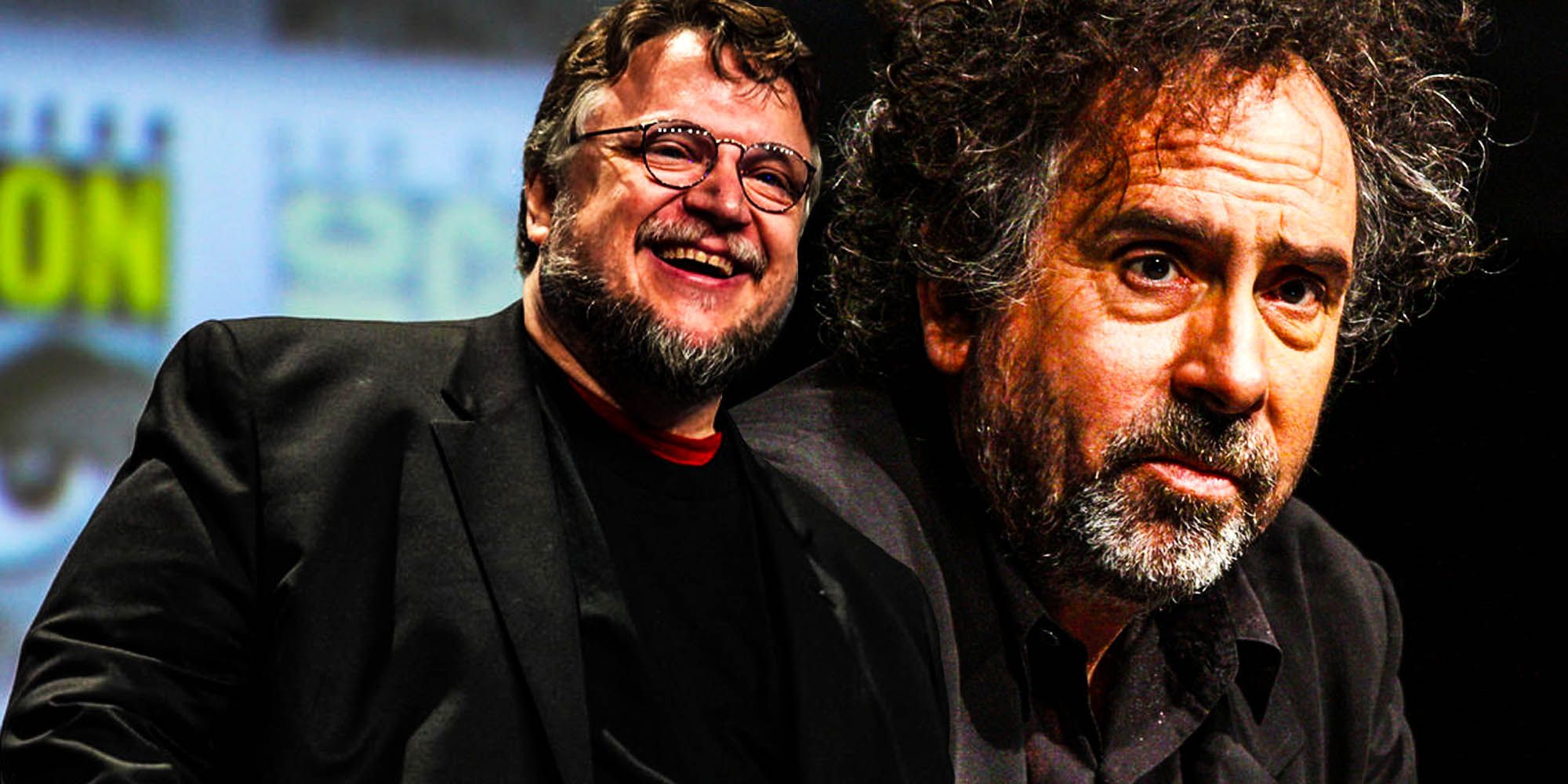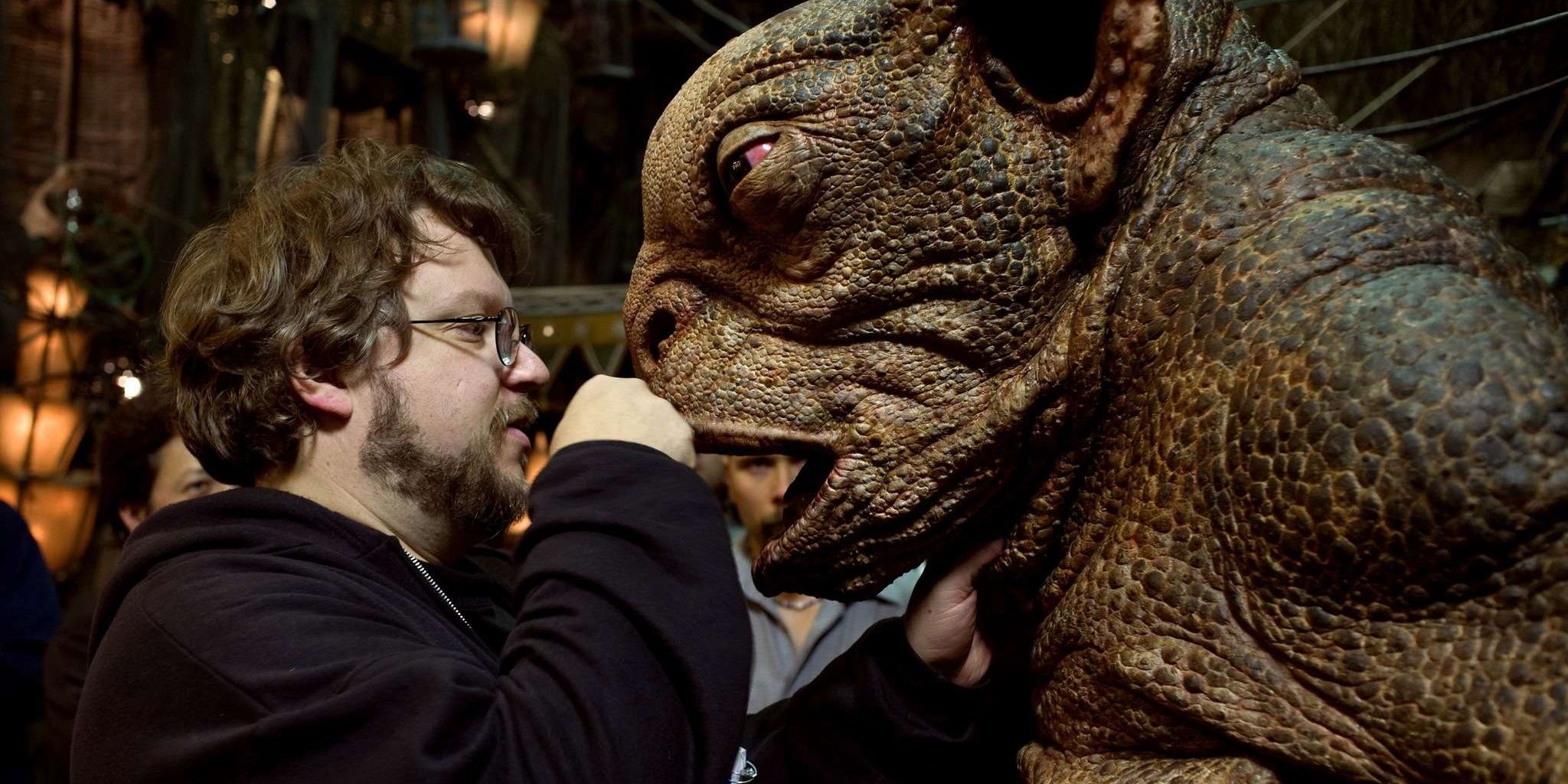Nightmare Alley's Guillermo del Toro has become the revered dark fantasy director that Tim Burton used to be decades ago. Armed with an incredible ability to craft haunting visuals, develop fascinating fantasy worlds, and use old-school concepts and techniques to create singular auteur films, del Toro is arguably the definitive dark fantasy/gothic horror director of the modern era. And in many ways, his success in directing dark, artistic, and often bizarre movies is a continuation of the style of filmmaking established by Tim Burton back in the 1980s.
Beginning with the Spanish-language vampire masterpiece Cronos in 1993, Guillermo del Toro quickly established himself as a unique voice in genre storytelling. With each new film, his visual style became more refined, and his cult following rapidly transformed into mainstream success. Del Toro's 2017 opus The Shape of Water earned him his first Oscar for directing, and also took home the statue for Best Picture. Nightmare Alley will be del Toro's next film, and is scheduled to release in December of 2021.
Over the course of nearly three decades of filmmaking, del Toro has remained an auteur director with a clear creative vision for his films. Instead of becoming a "director for hire," del Toro spearheads the ideas and design for his films, lending them a style that is uniquely his own. This approach isn't unlike the one Tim Burton used during his rise as a director in the 1980s and 1990s, but instead of sticking with his own visual style and continuing to pursue auteur filmmaking, Burton instead drifted away from the genre, leaving directors like del Toro to pick up the slack.
While the directing, aesthetic, and storytelling styles of Guillermo del Toro and Tim Burton are very different, their approach to working within the realm of cinematic dark fantasy is comparable. Films in Burton's oeuvre like Beetlejuice (1988), Edward Scissorhands (1990), and Mars Attacks (1996) all tackle supernatural/fantasy/sci-fi concepts in a unique way that only Burton's creative mind could've pulled off, and even films like Batman (1989) and Ed Wood (1994) bear his unique approach to material that was not his own.
Unfortunately, projects like Beetlejuice and Ed Wood would become less common in Burton's filmography after the 1990s. Instead of sticking with directing films in his well-known style, Burton began taking "director for hire" jobs like Planet of the Apes (2001), Alice in Wonderland (2010), and Dumbo (2019), which felt more like studio productions than examples of Burton letting his imagination run wild as it had in his earlier work. Conversely, del Toro stuck with his style, infusing it all of his films (even "director for hire" projects like 2002's Blade 2) and transforming it into a respected brand. Thanks to films like The Shape of Water and Nightmare Alley, director Guillermo del Toro has easily become the biggest name in dark fantasy film today, slipping effortlessly into the role that Tim Burton has left vacant for so many years.


